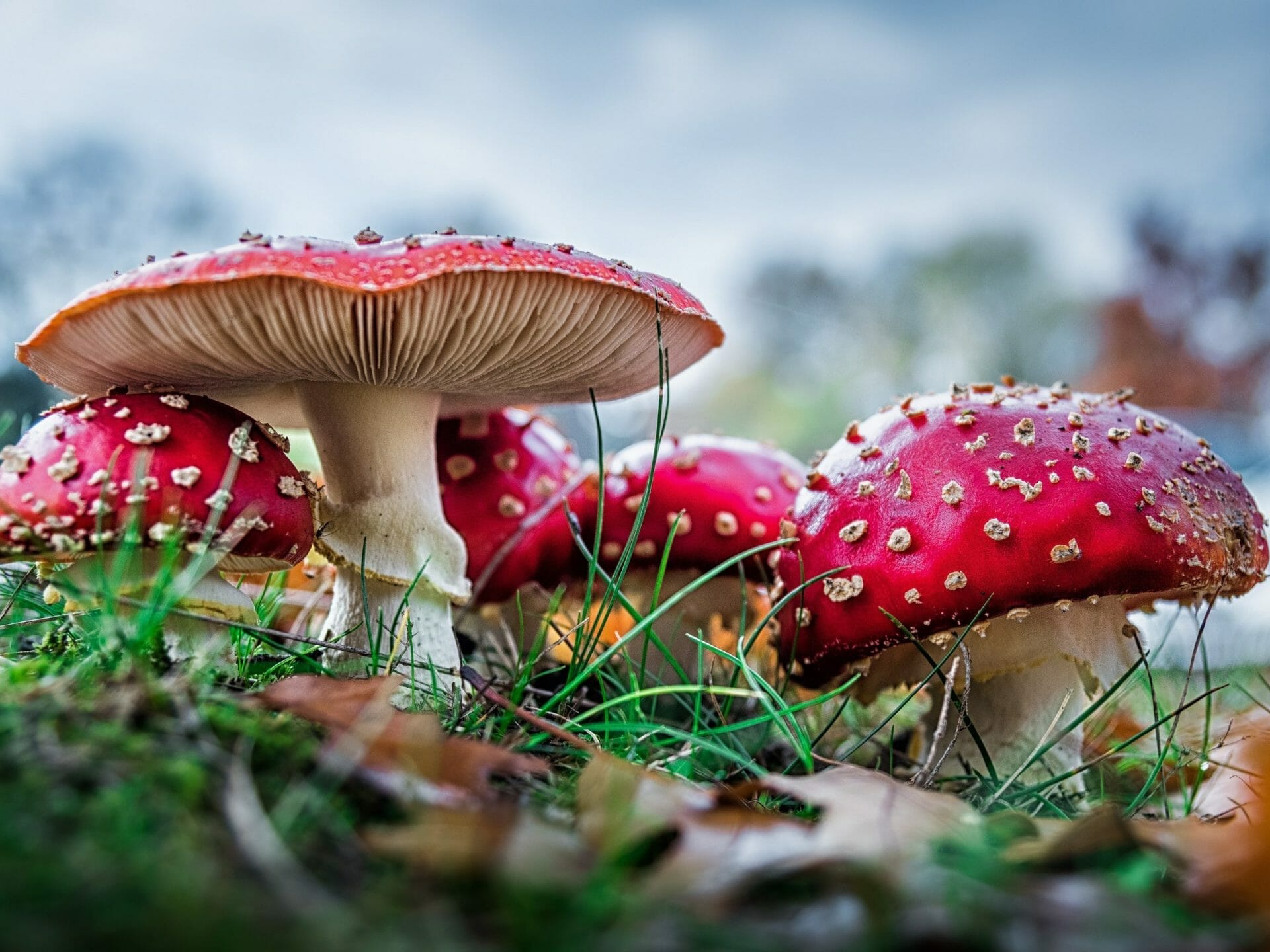Whether it be in the aisles of the grocery store or beneath our feet on hikes, mushrooms are abundant in our lives. Coming in many sizes and shapes, the most common mushroom varieties found in stores are button mushrooms, but more esoteric varieties are profuse in Asian cuisine such as enoki, beech, and maitake subtypes. Mushrooms are well recognized by chefs for their savory, earthy flavor which is known as ‘umami’. Interestingly, this is thanks to a protein compound called glutamate which contributes to a rich flavour profile. Beyond the culinary aspects, the health benefits of mushrooms provide further reason to incorporate this plant into our regular diets.
Mushrooms are rich in antioxidant proteins which serve to protect the brain and body from naturally occurring free radicals that build up in the body as we age. For these reasons, mushrooms have been recently investigated for their role in brain health. In a 2019 Singapore-based study published in the Journal of Alzheimer’s Disease by Dr. Halliwell, researchers sought to investigate whether increased consumption of mushrooms had any benefit on the development of cognitive impairment in older adults.
The team recruited 663 individuals aged 60 and up and followed their dietary consumption over the course of the study. They found that individuals who consumed more than 2 servings of mushrooms per week (which translates to roughly 1.5 cups of cooked mushrooms) had a reduced risk of mild cognitive impairment when compared to those who ate less than 1 serving per week. After adjusting for other risk factors that might have contributed to cognitive decline (like diabetes, heart disease and obesity), they found that the highest consumers of mushrooms had a 52% lower risk of having subsequent cognitive impairment. This exciting study is a building block to help explain the impact of mushrooms on delaying the degenerative changes associated with brain aging; however, it is important to recognize that a direct effect of mushrooms on cognition cannot be made based on this data.
Beyond the mainstream health benefits, there are a specific subset of mushrooms that have been popularized in the media for their hallucinogenic potential. Known as ‘magic mushrooms’, these fungi contain a compound called psilocybin. There is ongoing research on psilocybin which has shown promise in helping people overcome severe, treatment-resistant depression and addiction. Yet, since 1971, psilocybin was listed as a Schedule 1 illicit drug which is defined as being restricted from medical or recreational use and having a high potential for abuse. While psilocybin remains under prohibitory law in Canada, where does the research stand on its potential medicinal benefits for those dealing with severe mental health issues and addiction?
In a 2021 study published in JAMA Psychiatry from a research team out of Johns Hopkins Center for Psychedelic and Consciousness Research, Dr. Alan Davis’s team led a randomized clinical trial to assess whether psilocybin-assisted therapy could be beneficial in patients with major depressive disorder. This small trial involved 24 participants with mood disorder that is treatment-resistant to conventional medical therapy, half of which were randomized to receive psilocybin on top of their medical regime and therapy.
After two doses of psilocybin, all participants had their depression severity assessed by both a psychiatrist and self-assessment using a verified rating scale. Interestingly, participants who received psilocybin-assisted therapy showed improvement in the severity of their depression which was sustained for one month beyond the administration of the hallucinogenic compounds. Major depressive disorder is a substantial public health concern, affecting roughly 10% of Canadians. While medications and therapy provide benefits for the majority of those affected, many patients will experience significant side effects or not respond fully. These findings suggest that psilocybin may be effective for those with treatment-resistant depression.
While much research has focused on the effects of full doses of psychedelics, there is a different line of research that is examining the effects of small doses over time – often referred to as “microdosing.” Anecdotal evidence and some uncontrolled, observational studies suggest that microdosing may improve well-being, creativity, and cognition (but may also have unpleasant side effects like migraines, physical discomfort, trouble sleeping, and/or feelings of anxiety).
As more people learn about the potential benefits of psychedelics, particularly for conditions that are not well-addressed with currently available treatments, there has been growing interest and demand for psychedelics. Experts in psychedelics routinely advise that individuals should not attempt to self-medicate.




